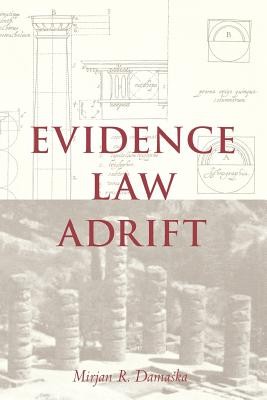
- We will send in 10–14 business days.
- Author: Mirjan R Damaska
- Publisher: Yale University Press
- ISBN-10: 0300206046
- ISBN-13: 9780300206043
- Format: 15.2 x 22.9 x 1 cm, softcover
- Language: English
- SAVE -10% with code: EXTRA
Reviews
Description
In this important book, a distinguished legal scholar examines how the legal culture and institutions in Anglo-American countries affect the way in which evidence is gathered, sifted, and presented to the courts. Mirjan Damaska focuses on the significance of the divided tribunal (between judge and jury), the concentrated character of trials ("day-in-court" justice), and the prominent role of the parties in adjudication (the adversary system). Throughout he contrasts the Anglo-American system with Continental, or civil- law justice, where lay fact finders sit with professional judges in unified tribunals, proceedings are episodic rather than concentrated, and the parties have fewer responsibilities than in the common-law tradition. Damaska describes the impact of the traditional institutional environment on the gathering and handling of evidence in common- law jurisdictions and then explores recent transformations of this environment: trial by jury has dramatically declined, pretrial proceedings have greatly proliferated, the adversary system shows signs of weakening in some types of cases. As a result, many rules and practices supporting the treatment of evidentiary material are in danger of becoming extinct. In addition, says Damaska, the increasing use of scientific methods of inquiry could place further strains on the use of traditional common-law evidence. In the future we should expect greater variety in decisionmaking activity, with factual inquiries tailored to the specific type of proceeding and common-law evidence restricted to a narrow sphere
EXTRA 10 % discount with code: EXTRA
The promotion ends in 18d.00:28:09
The discount code is valid when purchasing from 10 €. Discounts do not stack.
- Author: Mirjan R Damaska
- Publisher: Yale University Press
- ISBN-10: 0300206046
- ISBN-13: 9780300206043
- Format: 15.2 x 22.9 x 1 cm, softcover
- Language: English English
In this important book, a distinguished legal scholar examines how the legal culture and institutions in Anglo-American countries affect the way in which evidence is gathered, sifted, and presented to the courts. Mirjan Damaska focuses on the significance of the divided tribunal (between judge and jury), the concentrated character of trials ("day-in-court" justice), and the prominent role of the parties in adjudication (the adversary system). Throughout he contrasts the Anglo-American system with Continental, or civil- law justice, where lay fact finders sit with professional judges in unified tribunals, proceedings are episodic rather than concentrated, and the parties have fewer responsibilities than in the common-law tradition. Damaska describes the impact of the traditional institutional environment on the gathering and handling of evidence in common- law jurisdictions and then explores recent transformations of this environment: trial by jury has dramatically declined, pretrial proceedings have greatly proliferated, the adversary system shows signs of weakening in some types of cases. As a result, many rules and practices supporting the treatment of evidentiary material are in danger of becoming extinct. In addition, says Damaska, the increasing use of scientific methods of inquiry could place further strains on the use of traditional common-law evidence. In the future we should expect greater variety in decisionmaking activity, with factual inquiries tailored to the specific type of proceeding and common-law evidence restricted to a narrow sphere


Reviews